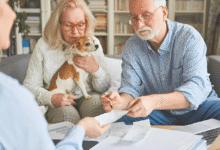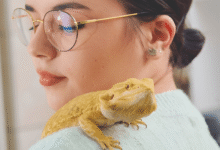
How to Start Training Your Puppy
Puppy training begins as soon as you bring them home, usually about eight weeks of age. Puppies continually learn, whether from their surroundings, socialization with humans or other animals, or direct training.
Follow this step-by-step puppy training plan to ensure your success and that of your puppy!
When Can You Start Training Your Puppy?
Puppy training begins as soon as you bring them home, usually about eight weeks of age. They can acquire fundamental puppy training cues like sit, stay, and come at this young age.
Tips for Training Your Puppy:
To help you start, here are some basic puppy training recommendations.
Use Positive Reinforcement
You may have heard of or witnessed numerous methods for training your puppy in person with a dog trainer. However, there is only one appropriate and scientifically supported training method: positive reinforcement.
Positive reinforcement is the process of rewarding desired behavior with a reward. Punishment, including harsh penalties, correcting devices such as shock, choke, and prong collars, and dominance-based handling tactics, should be avoided because they can have long-term implications that result in various forms of dread and anxiety in your adult dog.
To put this into practice, determine which rewards work best for your dog. Some puppies may find something as basic as a piece of their regular kibble exciting enough to learn with, while others may require something more palatable, such as a special training treat.
Keep Training Sessions Short
When teaching a fundamental cue, keep the sessions brief (5 minutes each) and attempt to average 15 minutes per day. Puppies have short attention spans, so make sure you end each session on a positive note, so they are eager for the next one!
Use Consistency When Training Your Puppy
It is critical to maintaining consistency in your approach to cues and training. When teaching your puppy fundamental signals like sit, stay, and come, use the exact phrase and hand gesture.
It is also critical to continually encourage the desired behavior, even when it is inconvenient. So, if your puppy is at the door and needs to use the restroom, stop what you’re doing, let them out, and reward them for using the bathroom outside.
Practice in Different Environments
Taking a puppy to a new location, such as a park or the beach, and asking for a cue is very different from training at home. This is because they will be exposed to various fresh sights and odors outside the home.
Train in various settings to prepare your dog to be confident. Please remember that pups should not go to regions with many dogs until they have completed their puppy immunization series!
Be Patient
Training at home is entirely different than taking a puppy to a new place, like a park or the beach, and asking for a cue. This is because they will be exposed to a wide range of novel sights and smells outside the house.
Train your dog in various environments to give him the necessary confidence. Please remember that puppies shouldn’t visit areas with many dogs until they have finished their puppy vaccination series!
Read More: Winter Dog Grooming: 6 Tips You Must Follow







